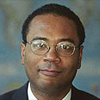25 Jun 2015 Black Conservatives React to U.S. Supreme Court Decision for Use of “Disparate Impact” in Administration of Fair Housing Act
Washington, D.C. – Legal and policy experts with the Project 21 black leadership network are available for comment on today’s U.S. Supreme Court decision that allows perceived group racial disparities to be used as a trigger for enforcement of the Fair Housing Act.
 “When those statistical differences alone are used as proof of discrimination, freedom and liberty are lost; but worse the constitutional protections provided to every American as an individual are lost too,” said Project 21 co-chairman Horace Cooper, a legal commentator who taught constitutional law at George Mason University and is a former leadership staff member for the U.S. House of Representatives.
“When those statistical differences alone are used as proof of discrimination, freedom and liberty are lost; but worse the constitutional protections provided to every American as an individual are lost too,” said Project 21 co-chairman Horace Cooper, a legal commentator who taught constitutional law at George Mason University and is a former leadership staff member for the U.S. House of Representatives.
 “It’s a shame that the majority of justices are willing to allow allegations of discrimination in housing to be painted using a broad brush — sometimes by those who may not even be among the aggrieved — rather than finding and cutting out true instances of abuse with scalpel-like precision,” said Archbishop Council Nedd II, Ph.D., author of multiple books and rector of St. Alban’s Anglican Church in Pine Grove Mills, PA. “The Fair Housing Act was meant to be a scalpel, but the Court has now decided otherwise to our peril. Society is served better by a system that removes specific problems rather than pitting groups against each other.”
“It’s a shame that the majority of justices are willing to allow allegations of discrimination in housing to be painted using a broad brush — sometimes by those who may not even be among the aggrieved — rather than finding and cutting out true instances of abuse with scalpel-like precision,” said Archbishop Council Nedd II, Ph.D., author of multiple books and rector of St. Alban’s Anglican Church in Pine Grove Mills, PA. “The Fair Housing Act was meant to be a scalpel, but the Court has now decided otherwise to our peril. Society is served better by a system that removes specific problems rather than pitting groups against each other.”
On appeal from the federal Fifth Circuit Court of Appeals, the case of Texas Department of Housing and Community Affairs, et al. v. The Inclusive Communities Project, Inc. addressed a festering legal problem regarding the Fair Housing Act’s use to address accusations of disparate racial impact instead of enforcing the law on a case-by-case, as-needed basis as was argued by its supporters when it was debated in Congress.
Specific to this case, the Inclusive Communities Project (ICP) claimed the Texas Department of Housing and Community Affairs, a state agency, violated the federal Fair Housing Act by allocating housing tax credits to developers in a manner that they alleged broadly kept minorities in low-income minority-majority neighborhoods rather than allowing access to housing opportunities in wealthier majority-white communities in the Dallas metropolitan area. ICP charged the department’s tax credit distribution policy creates a disparate impact on black recipients of such credits as a class rather than addressing individual instances of alleged abuse.
Project 21 joined a legal brief submitted to the Court that asked the justices to specifically define the legal scope of the Fair Housing Act. In the brief, it was argued that the Act was written “to apply solely to disparate treatment, not acts having disparate impact on protected classes” and that the U.S. Supreme Court must “consider the threshold question of whether disparate impact claims are even cognizable under the Fair Housing Act” since “disparate impact claims do not depend on the intent of the action or policy.”
This legal brief joined by Project 21 was written and submitted to the Court by the Pacific Legal Foundation and was also joined by the Center for Equal Opportunity, Competitive Enterprise Institute, Cato Institute, Individual Rights Foundation and Reason Foundation.
In 2014 and 2015, Project 21 members have already been interviewed or cited by the media over 2,600 times — including TVOne, the Philadelphia Inquirer, Fox News Channel, Westwood One, St. Louis Post-Dispatch, SiriusXM satellite radio and 50,000-watt talk radio stations such as KOA-Denver, WHO-Des Moines, WJR-Detroit, WBZ-Boston and KDKA-Pittsburgh — on issues that include civil rights, entitlement programs, the economy, race preferences, education and corporate social responsibility. Project 21 has participated in cases before the U.S. Supreme Court regarding race preferences and voting rights and defended voter ID laws at the United Nations. Its volunteer members come from all walks of life and are not salaried political professionals.
Project 21, a leading voice of black conservatives for over two decades, is sponsored by the National Center for Public Policy Research (https://nationalcenter.org).
-30-



